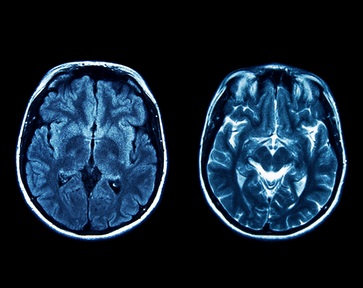Drug used to treat angina could prevent dementia
A new trial has been launched by scientists to determine whether an angina drug can prevent lacunar strokes which trigger dementia.

Researchers at the universities of Edinburgh and Nottingham will share an £850,000 grant from The British Heart Foundation (BHF) to support research into treatments for lacunar strokes, which are thought to be an underlying cause of at least 40 per cent of dementia cases in England.
Professor Joanna Wardlaw, lead researcher at the University of Edinburgh, said: “This is one of the first trials to look into treatments for this particular type of stroke. Lacunar strokes can cause brain damage, affecting thinking ability, balance and the way people walk.
“With this in mind, there is a strong link between this type of stroke and dementia.”
Lacunar strokes are caused by damage to small vessels in the brain that restrict blood flow and can lead to long-term disability. There is currently no proven treatment for a lacunar stroke.
According to the World Health Organisation (WHO) the prevalence of post stroke dementia is approximately 30 per cent and the incidence of new onset dementia after a stroke increases from seven per cent after a year to 48 per cent after 25 years. Dementia after stroke is also associated with premature mortality.
In a three year-long trial, at least 200 people at risk of suffering a stroke will be treated with either Isosorbide Mononitrate or a heart drug called Cilostazol, which cost approximately 63 pence per tablet.
The drugs are principally used in the treatment of angina pectoris and act by dilating the blood vessels to reduce blood pressure.
Researchers will perform MRI scans on the participants to identify the effects the drugs have on the small blood vessels within the brain.
Ms Wardlaw added: “Following treatment with these drugs, we’ll be monitoring how the blood vessels are changing and seeing if they improve the outcomes of patients that have suffered a lacunar stroke.”
If successful, scientists believe the research could deliver new treatments for lacunar strokes and potentially prevent some cases of dementia.
Dr Shannon Amoils, a BHF senior research adviser, continued: “There are currently no proven treatments for lacunar strokes and this important trial will establish if two drugs, already available in the UK for other conditions, are safe to use in people with this type of stroke.
“The trial also aims to lay the foundations for a larger, more definitive study in the future.”
Latest News
 29-Jul-24
Dementia Bus gives carehome.co.uk staff insight into life with dementia
29-Jul-24
Dementia Bus gives carehome.co.uk staff insight into life with dementia
 01-Mar-24
Find out the top care homes in 2024
01-Mar-24
Find out the top care homes in 2024
 21-Mar-23
UK's top care homes in 2023 revealed
21-Mar-23
UK's top care homes in 2023 revealed
 03-Jan-23
carehome.co.uk launches free care helpline
03-Jan-23
carehome.co.uk launches free care helpline
 13-Dec-22
5 mins with Emily Whitehurst, chief operating officer for Constantia Healthcare
13-Dec-22
5 mins with Emily Whitehurst, chief operating officer for Constantia Healthcare